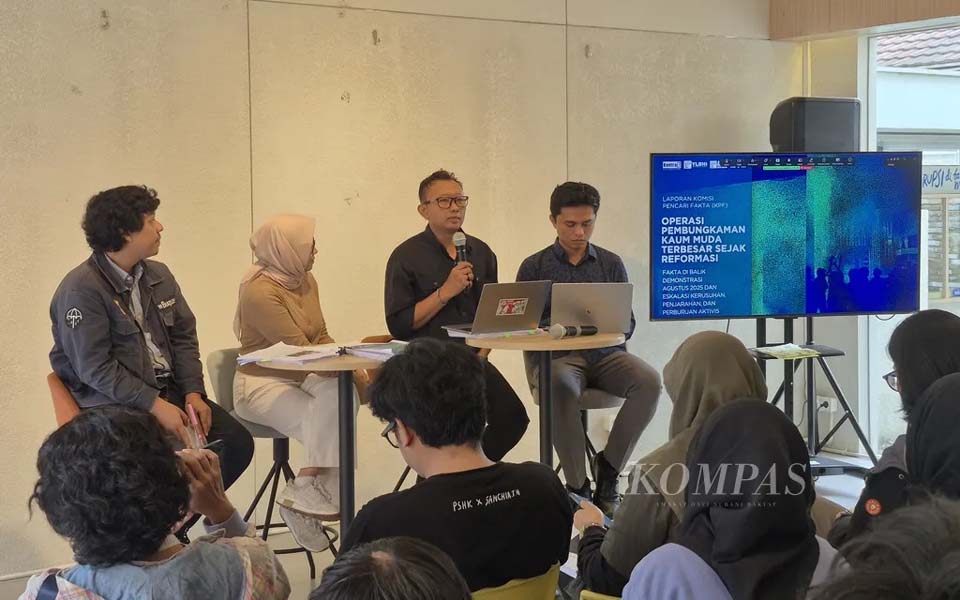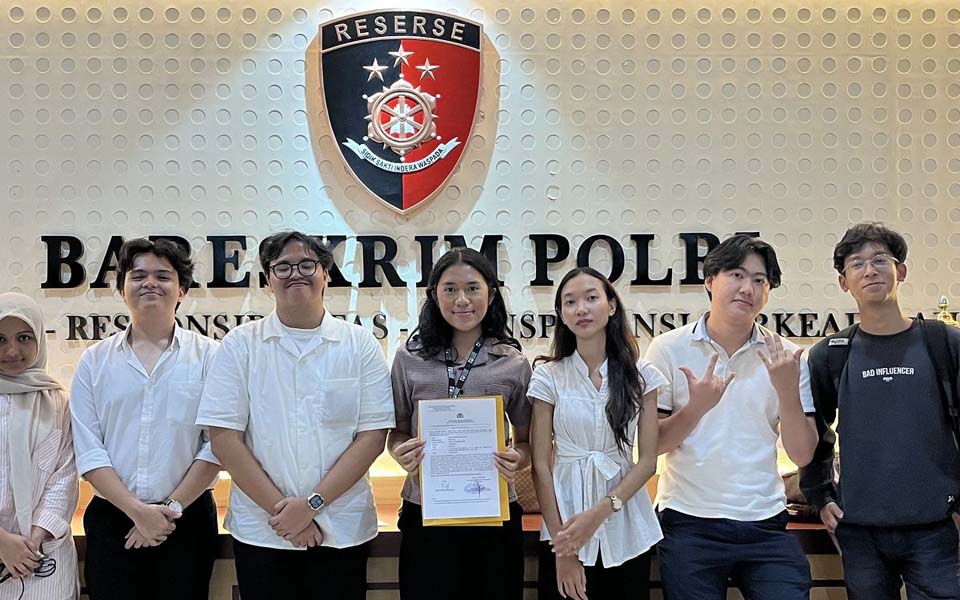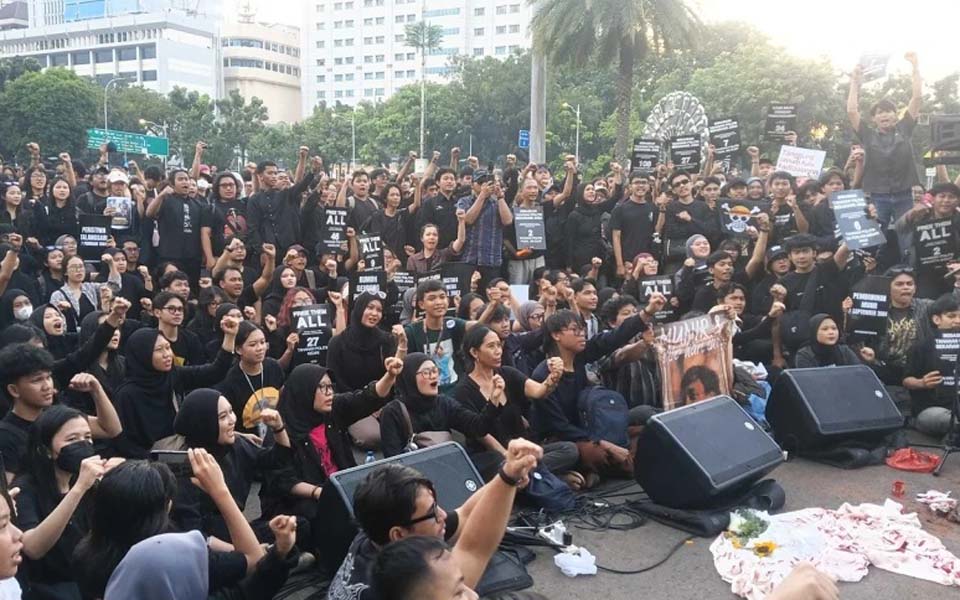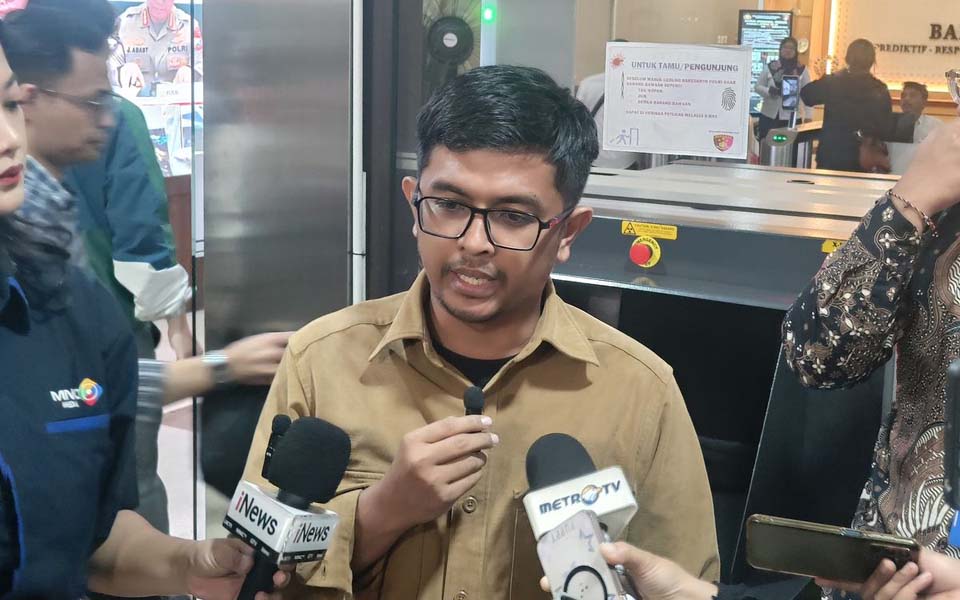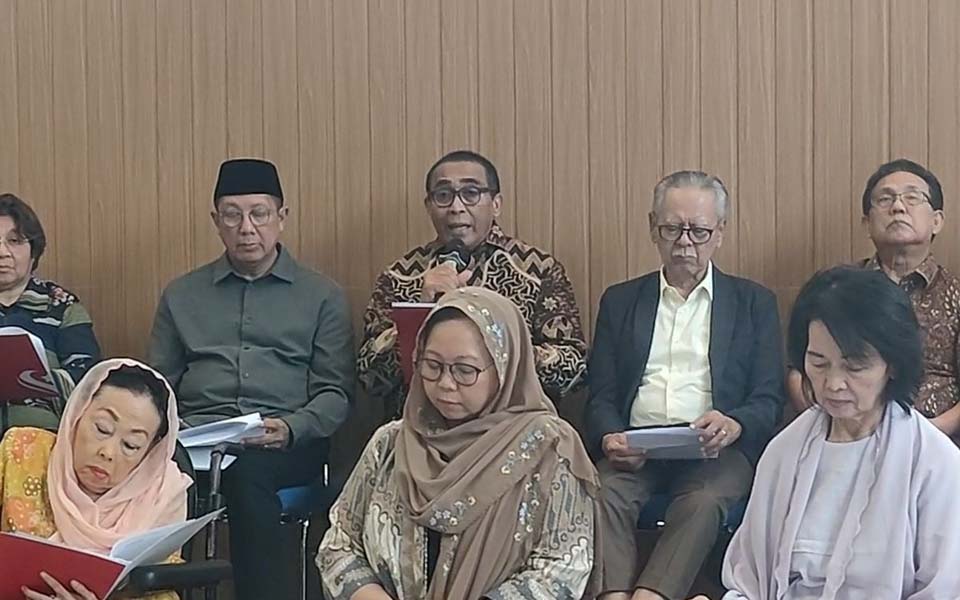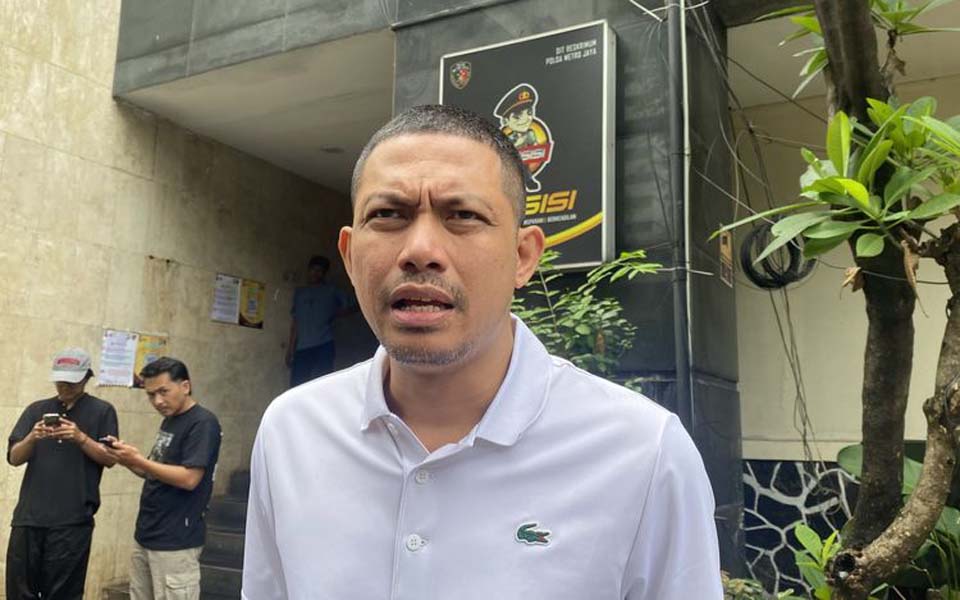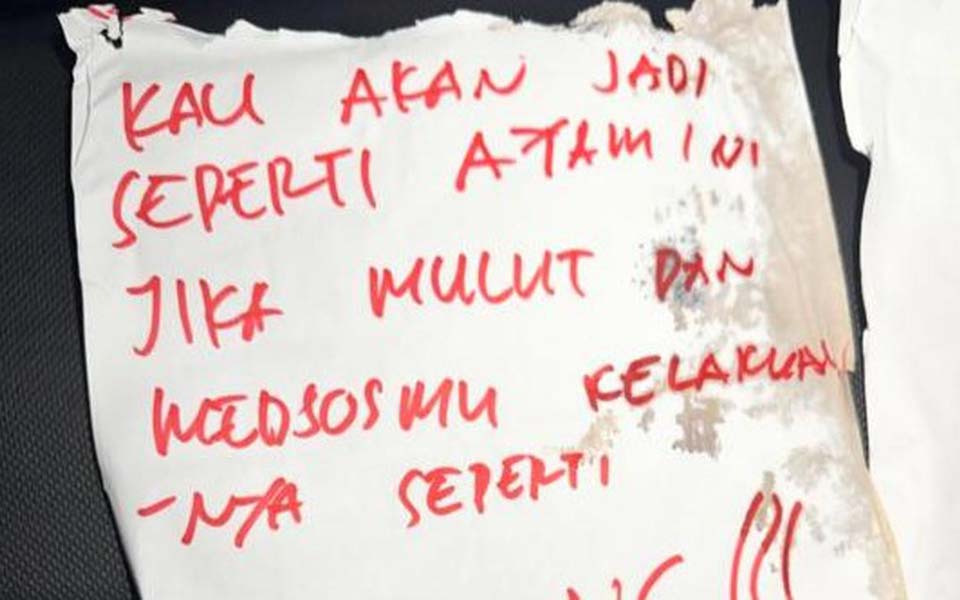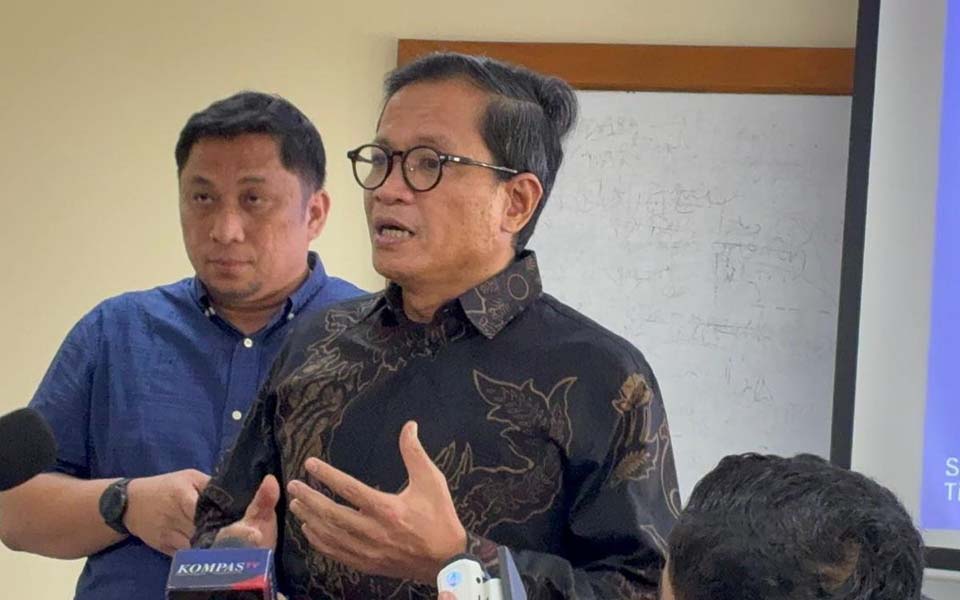Jakarta – The Indonesian Legal Aid Foundation (YLBHI) has found that national strategic projects (PSN) and the management of natural resources (SDA) under the administration of President Joko "Jokowi" Widodo has crfeated injustice and oppression for the ordinary people.
In addition to this, these national strategic projects and natural resource industries have caused environmental destruction and land conflicts.
"The YLBHI found that PSN and the management of SDA produced multiple effects in the form of injustice and the oppression of ordinary people", wrote the YLBHI in a written release on Sunday September 25.
There has yet to be a response or comment from the government on the YLBHI's statement.
"In fulfilling these ambitious projects, the state has committed a series of repressive acts and used excessive force (excessive use of force) against residents who are defending their land, water and living space through state security forces, namely the TNI [Indonesian military] and the Polri [Indonesian police]", they continued.
The YLBHI found that farmers, traditional communities, human rights defenders and environmental activist suffered physical violence, non-physical violence and criminalisation.
Over the period 2017-2023, the YLBHI recorded a number of incidents of violence against farmers in cases being handled by its 18 regional Legal Aid Foundation (LBH) offices. This seven-year period was determined based on the start of national strategic projects in 2016.
The explanatory data on criminalisation covers areas of natural resource conflict, especially in areas where there were national strategic projects. The data is divided into several variables, including the number of conflicts, the area of conflict and number of victims, the perpetrators of violence and criminalisation, patterns of violence, the laws that were frequently used, the causes and the structural impacts of conflict.
The YLBHI data
As many as 106 agrarian conflicts and cases involving national strategic projects were handled by the YLBHI and its regional LBH offices throughout Indonesia. The land area where there were conflicts covered around 800,000 hectares and resulted in more than 1 million ordinary people falling victim.
The plantation sector was dominant with 42 cases, followed by the mining sector with 37 cases, then conflicts involving national strategic projects with 35 cases.
The YLBHI said that there were a variety of perpetrators in these conflicts. Private companies were involved in 100 conflicts, regional governments in 74 conflicts and the police in 50 conflicts.
A many as 123 acts of violence were recorded, which broadly speaking fell into three types of patterns.
First, patterns of violence in the form of verbal violence such as intimidation in the form of physical violence ranging from physical abuse to torture. This pattern was recorded in 48 cases (40 cases of intimidation and eight cases of physical violence).
Second, 43 cases split between these two patterns, and third, criminalisation with 43 cases.
"Usually, these three patterns were applied in stages, for example beginning with the threat of forced eviction and the threat of criminalisation, then increasing to the level of violence and criminalisation", wrote the YLBHI.
Furthermore, said the YLBHI, local people that were criminalised were used as negotiation tools causing divisions between those who supported and opposed a given project within the community.
The YLBHI recorded that out of the 43 cases, some 212 farmers were criminalised. The majority of cases of criminalisation used articles under the Criminal Code (KUHP) with 29 cases.
This was followed by the Mineral and Coal Mining Law (UU Minerba) with seven cases, Law Number 39/2014 on Plantations with four cases, Law Number 18/2013 on the Prevention of Forest Clearing and Destruction with three cases, the Information and Electronic Transaction Law (UU ITE) with two cases and the anti-communism law in one case.
The YLBHI also highlighted attempts to criminalise farmers involving strategic national projects in the 18 regions where there are LBH offices. There were some 35 national strategic projects in which 35 farmers became victims of criminalisation. The victims came from five different provinces or municipalities, namely Central Java, West Java, Padang, Makassar and Manado.
The largest number of cases of criminalisation in national strategic projects occurred in Central Java (10 cases) and Padang (10 cases).
If viewed from the legal basis for the criminalisation, the YLBHI noted that almost all of them were based on Article 362 of the KUHP on theft.
Second, Article 333 that contains criminal offices on depriving a person of their freedom. Third, Article 170 that contains offences on crimes of violence against persons or materials.
Fourth, Article 154a that contains offences on insulting state symbols. Fifth, Article 406 that regulates damage to another person's property. And finally, Article 27 of the ITE Law that contains offences on defamation.
The YLBHI and its 18 regional LBH offices are urging the government and the House of Representatives (DPR), as well as related ministries and government institutions, to cancel all strategic national projects that are considered to harm the ordinary people or trigger practices of violence and human rights violations by the state though its apparatus.
The YLBHI is also asking the government to stop appropriating the people's land in the name of management rights and state land claims.
The other demand is asking the government to withdraw all security forces from agrarian conflict areas and national strategic projects, as well as revoking the Omnibus Law on Job Creation and its derivative regulations, which are seen as triggers for the increase in land grabs and state violence against the ordinary people.
The YLBHI is also asking that national programs disguised as agrarian reform or fake agrarian reform programs to be stopped.
In addition to this, the government is being asked to stop the criminalisation of those fighting for land rights and the environment, as well as their unconditional release from all charges and criminal indictments.
"Ensure that the state implements the constitutional mandate, especially Article 33 Paragraph (3) of the 1945 Constitution, [which states] that the earth, water and natural resources contained therein are controlled by the state for the greatest prosperity of the people, not for investors and/or those in power or entrepreneurs", wrote the YLBHI. (yoa/tsa)
[Translated by James Balowski. The original title of the article was "YLBHI: PSN Era Jokowi Hasilkan Penindasan Terhadap Rakyat".]






